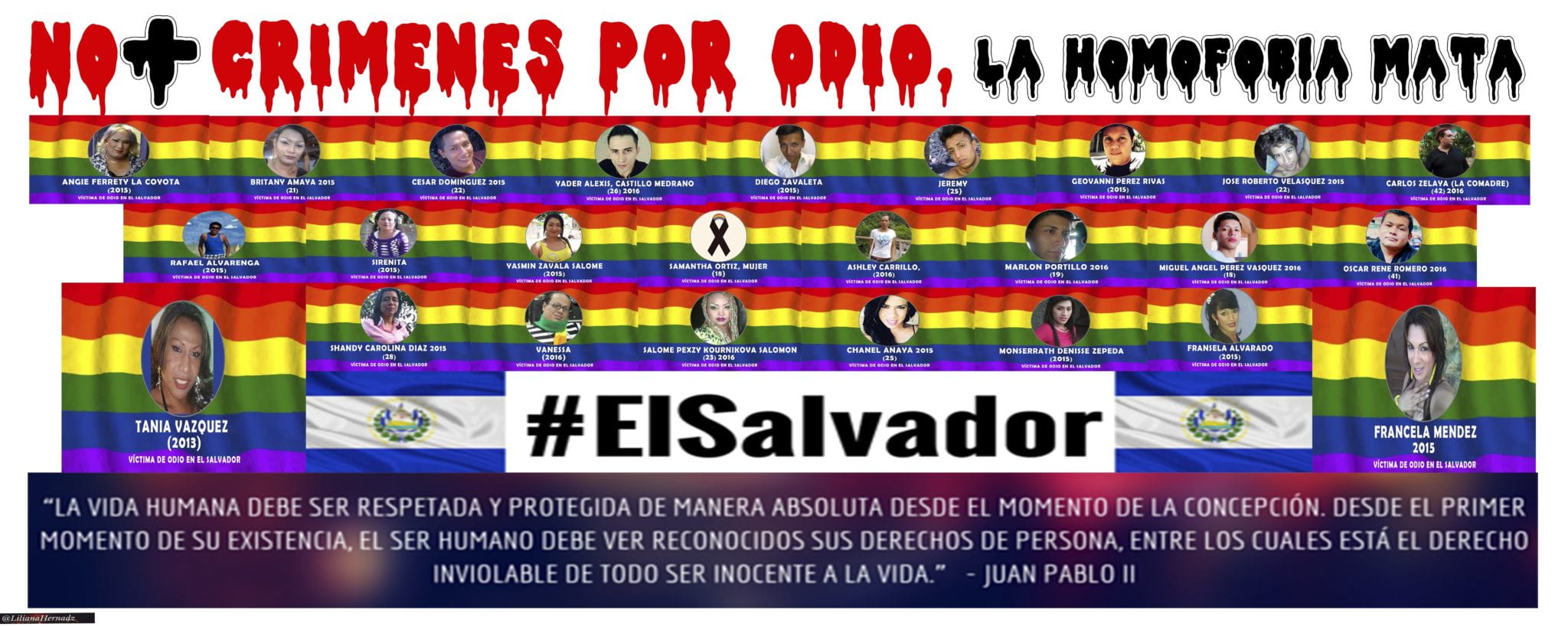Mirtala Sanchez
Entre Amigos
San Salvador, El Salvador
June 12, 2016, 2AM, Orlando, Florida: the time and place of the deadliest incident of violence against the LGBT community in US history. A single gunman took the lives of 49 people and injured 53 others (many who were Latinxs) at Pulse, a LGBT nightclub. A week after the shooting, I completed my first week with Entre Amigos. It was a busy one because of the Orlando shooting and local Pride Month events, including Foro: Celebrando Nuestro Orgullo LGBTI (Forum: Celebrating Our LGBTI Pride) on June 13 and V Plegaria Rosa LGBTI (5th LGBTI Pink Prayer/Orison) on June 18.
The LGBTI community was rattled, and the Orlando massacre’s ripples were felt all the way in El Salvador. Rumors swirled about the June 25 Pride March being cancelled, but they were swiftly debunked by Entre Amigos, who organized the march. Fueled by the Orlando shooting, many feared the possibility of antagonistic reactions and the real danger of hate crimes and violence, which are not out of the norm for LGBTI Salvadoreñxs, as seen in the banners below, which illustrate a mere fraction of LGBTI persons who have been murdered in El Salvador.


As a result of this deadly reality, Entre Amigos organized the Plegaria at the Monument to the Divine Savior of the World. The event attracted more than 180 friends, family, organization, activists, and religious representatives, who showed solidarity with and commemoration of hate crime victims in El Salvador, Orlando, and worldwide, past and present.
The atmosphere was filled with sorrow and grief, and the air was penetrated by the weight of memories, unity, love, and hope. With the presence of Paty Conde, a transwoman who survived El Salvador’s Civil War (shown below in the green dress), and the retelling of war stories from the 80s, the memory of those disappeared during the war survive. Their lives and legacies were honored with banners, pictures, and lists of names of recent hate crime victims.
 It was an occasion for camaraderie and reflection on these tragic and difficult times for the LGBTI community, nationally and internationally. The (re)telling of the stories of the LGBTI population are critical to changing hearts, minds, and laws that will ensure human rights for everyone, regardless of gender identity and/or expression.
It was an occasion for camaraderie and reflection on these tragic and difficult times for the LGBTI community, nationally and internationally. The (re)telling of the stories of the LGBTI population are critical to changing hearts, minds, and laws that will ensure human rights for everyone, regardless of gender identity and/or expression.

The Plegaria was powered by religious hope and faith. Religion is omnipresent in El Salvador, but I question the benefits and acceptance of religion(s) and the church(es). I question the (existence of a supposed) all-powerful, just, and benevolent God. How can such a God allow hate and death to endure? How can such a God remain silent…absent? How can LGBTI Salvadoreñxs continue believing? How can their faith be so fervently alive and yet not be consumed by the atrocities and evil they witness and experience? How can their faith and devotion not be replaced with bitterness and anger?
These are questions for which I have no answers, and possibly never will. Nevertheless, after reflecting on my short time with Entre Amigos and after listening to LGBTI Salvadoreñxs, I do realize and acknowledge the source of strength and fortitude they find in their faith, even as I continue to question and attempt to understand.
The words of Martin Luther King, Jr., were recited at the Plegaria: “La oscuridad no puede expulsar la oscuridad; solo la luz puede. El odio no puede expulsar el odio; solo el amor puede” (Darkness cannot drive out darkness; only light can do that. Hate cannot drive out hate; only love can do that). As such, there’s still a need for loving, open, and affirming religious spaces that can fight against the inescapable violence the LGBTI community faces and thus defend human rights for all in El Salvador.